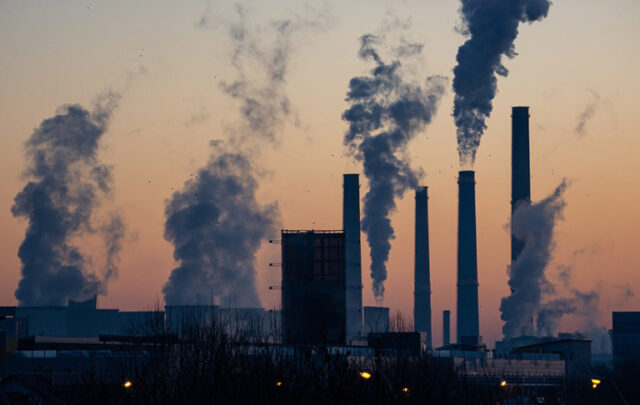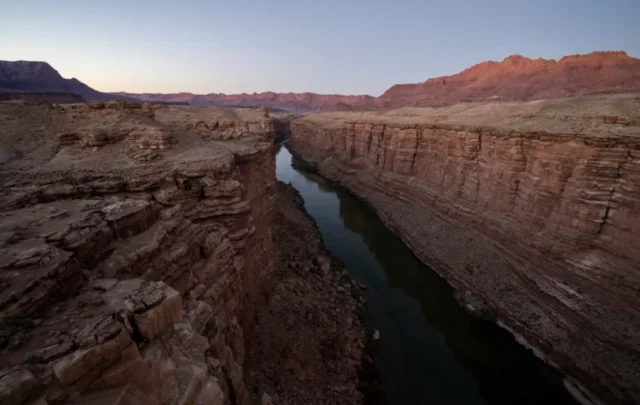Click on the headline (link) for the full text.
Many more articles are available through the Energy Bulletin homepage
Poverty an asset; assets a burden
Chris, ClubOrlov
Dmitry Orlov writes:
Another guest post from Chris, most recently from the Outback, but now ensconced in a place that seems much more collapse-proof.
Chris writes of a paradox: lack of assets may be the greatest asset of all. I don’t believe that this is a paradox: the higher you climb, the harder you fall. A place that is used to an artificially high standard of living inevitably develops artificially high standards. These standards cannot be undone overnight, as soon as the standard of living collapses, delaying commonsense adaptations until it is too late. Prosperous places have expensive infrastructure, and, once it can no longer be maintained, it becomes much worse than no infrastructure at all. Lastly, poverty takes practice, and a sudden lapse into poverty is far more traumatic than the habit of a stable but constrained existence.
I have recently moved from Australia, where Peak Oil issues are just beginning to gain traction belatedly in the mainstream press, to the Philippines, where seemingly nobody has even heard of peak oil — yet.
… The Philippines, like a number of other countries, is living in a paradox of different proportions [than Australia, USA and Europe]. Outside of the biggest cities here, food is growing everywhere, in the villages themselves, as well as the agricultural lands around them. Most people here can tell you how to grow a list of useful plants and to raise chickens.
They are also very much used to sharing. There is virtually no government safety net here. To become eligible for social welfare payments, one must have held the same job for ten years; this almost never happens. Yet even in the moderate-sized cities, nobody starves. Interdependence is local and regional rather than national and international. Of course, there is a degree of modernization contributing to the welfare of people. Some people work in the cities or overseas and send money home to support the extended family. But even without this money life would go on.
Most people here are very fit compared to developed nation’s. I have seen hardly any overweight people, let alone obese. Washing is done by hand in water pumped by hand from the ground. “Sounds horrible,” I hear the average reader murmur: but it works and it means the people are physically fit. The main diet is locally grown rice with similarly grown meats and vegetables. Fruit can be expensive because a lot of it is exported, yet whatever is in season is abundant. The fishing trade here is mostly very small boats with small crews using small nets and lines; there are very few industrial scale fishing boats. I live near a fishing village where 95% of the income is derived from fishing in these small boats; the population of over 2,000 people is the healthiest, happiest bunch I have ever met.
Transport here is a world away from that in developed nations, yet there is no problem getting anywhere. Locally, there are tricycles and jitneys going past all the time in all directions; these and the buses are very affordable for most people. Only about 2% of households have a car, and maybe half have a private 125cc motorcycle or tricycle. These vehicles get about 100 miles to a gallon of fuel.
The paradox is this: the Philippines greatest asset in the future may be its lack of assets now. Less debt, less dependence on expensive gadgets, less laziness and complacency. More communalism, more integration.
(18 November 2008)
The Guardian’s sustainability vision
Editorial, Guardian (UK)
Our vision is to be the leader on sustainability within the media industry and to be environmentally regenerative in our activities. Through our editorial coverage and business activities, we will demonstrate to readers, staff, advertisers, suppliers and our communities that GNM is committed to enhancing society’s ability to build a sustainable future.
Editorial
Clearly our greatest impact comes from informing and influencing our global audience. We will therefore build on our position as a recognised leader in the reporting of environmental and social justice issues by providing the most comprehensive news coverage on subjects such as climate change, environmental degradation and social inequality. These topics will be explored from the social, economic, political and scientific perspectives, both nationally and globally.
We will promote public debate and harness the power of our readers and users by creating online tools and projects that give them the opportunity to share knowledge and ideas, as well as encouraging them to make a difference, both as individuals and within their communities.
Social justice has always been at the heart of our journalism and we will consistently give a voice to disadvantaged communities around the world most affected by climate change.
(17 November 2008)
One of several articles in a Guardian sustainability report.
New York City streets: Utilitarian corridors or livable public space (YouTube)
Glenn, The Oil Drum: Local
In just the last year and a half, Transportation Commissioner Janette Sadik-Khan has begun a dramatic transformation of New York City’s streets from mere utilitarian corridors into livable public spaces.
This is no happy accident. It took advocates (and bloggers!) years and years of hard work to make this possible. Only three years ago Mayor Bloomberg proudly stated that traffic was a side effect of the city’s growing vitality. Now he’s leading the charge on putting into place practical ideas that make the city less dependent on automobiles, more livable, more desirable and inviting to new families that would otherwise choose to live in exurban developments.
This may seem like just a feel good story about something that just increases quality of life for some people in NYC that doesn’t have much implication for the rest of the country, but consider this: As the Commissioner states, NYC is planning on a million new residents over the next 20 years. Think about how many square miles of suburban/exurban development that will save for farming. Think about how many fewer cars will be produced if those million people come to NYC. What if every city across the country were a more desirable place to live, work, play, shop than its surrounding suburbs?
As we think about our future, we will need to be very conscious of how we can make low energy consumption urban areas more desirable than high energy consumption suburban areas.
(18 November 2008)
Original has a YouTube interiew with Transportation Commissioner Janette Sadik-Khan. See next item too.
NY City: On the street – clear sailing (slideshow with audio)
Bill Cunningham, New York Times
Enthusiastic photos and commentary about New York City’s opening of its street to bicycles, pedestrians, bicycles, spring stilts, wheelchairs, a 20-feet bicycle, baby carriages (one containing pet rabbits).
This is the third Saturday in August for NYC, though Bogota, Columbia has been doing it for 30 years (see next item).
Quotes from photographer Bill Cunningham who narrates:
“A total New York happening”
“Park Avenue [was] closed from the Brooklyn Bridge all the way up into Central Park.”
“The most extraordinary thing you ever saw. … Everyone was out.”
“It was a triumph for bikes.”
“I can’t begin to tell you what an excitement it was. “All we can hope is that they repeat it next summer.”
“I think the good that it did, the excitment it brought, you can’t imagine what it was like. It was like the day after a blizzard, but a blizzard of bicycles.
“If it happens again, get your roller skates, get your in-line skates, get your bicycles whatever you have on wheels and get it out on Park Avenue.”
Recorded by Susan Guerrero
Produced by Simone S. Bridges
Photos by Bill Cunningham
(30 August 2008)
The original gives a feeling of the excitement that met NYC’s opening its streets. -BA
‘One planet’ pledge for Wales
BBC
An ambitious plan to reduce the impact Wales has on the environment has been announced by the assembly government.
Environment Minister Jane Davidson committed Wales to becoming a “one planet nation”, using only its “fair share” of the world’s resources.
The targets include an 80 to 90% cut in carbon-based energy and a move towards recycling or re-using all waste.
But the Conservatives said “appalling” local council funding deals would hinder efforts to achieve the goal.
A consultation document, ‘One Wales: One Planet’ said the aim was to achieve the targets “within the lifetime of a generation”…
(19 November 2008)
The Welsh Assembley also released a report on peak oil in 2008 putting them ahead of the UK government.-SO





